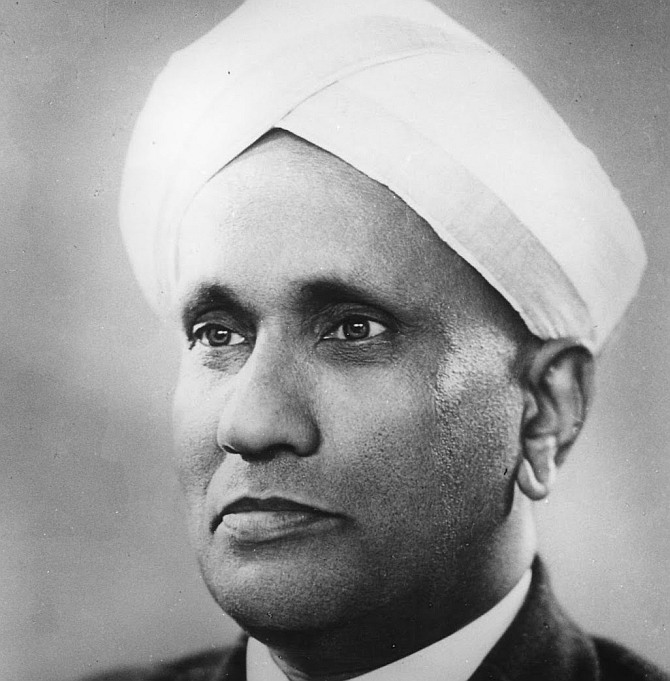Sir Chandrasekhara Venkata Raman (7 November 1888 – 21 November 1970) was an Indian physicist born in the former Madras Province in India, who carried out ground-breaking work in the field of light scattering, which earned him the 1930 Nobel Prize for Physics. He discovered that when light traverses a transparent material, some of the deflected light changes in wavelength. This phenomenon, subsequently known as Raman scattering, results from the Raman effect.In 1954, India honoured him with its highest civilian award, the Bharat Ratna.
Raman’s father initially taught in a school in Thiruvanaikaval, became a lecturer of mathematics and physics in Mrs. A.V. Narasimha Rao College, Visakhapatnam (then Vishakapatnam) in the Indian state of Andhra Pradesh, and later joined Presidency College in Madras (now Chennai).
He was elected a Fellow of the Royal Society early in his career (1924) and knighted in 1929. Raman was the only Indian F.R.S., who resigned from the Fellowship of the Royal Society
In 1930 he won the Nobel Prize in Physics.
In 1941 he was awarded the Franklin Medal.
In 1954 he was awarded the Bharat Ratna.
He was awarded the Lenin Peace Prize in 1957. In 1998, the American Chemical Society and Indian Association for the Cultivation of Science recognized Raman’s discovery as an International Historic Chemical Landmark.
India celebrates National Science Day on 28 February of every year to commemorate the discovery of the Raman effect in 1928.
(Ref:https://en.wikipedia.org/wiki/C._V._Raman & www.rediff.com)
